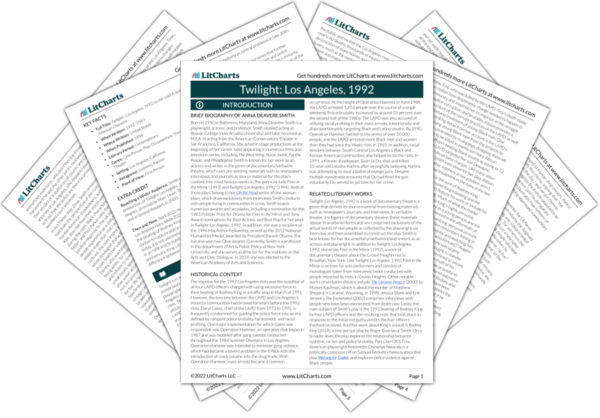Previous
Lightning But No Rain
|
Previous
Lightning But No Rain
|
Twilight: Los Angeles, 1992: A Bloodstained Banner Summary & Analysis |
Next
Carmen
|


Upgrade to unlock the analysis and theme tracking for all of Twilight: Los Angeles, 1992Twilight: Los Angeles, 1992!
Get LitCharts A+